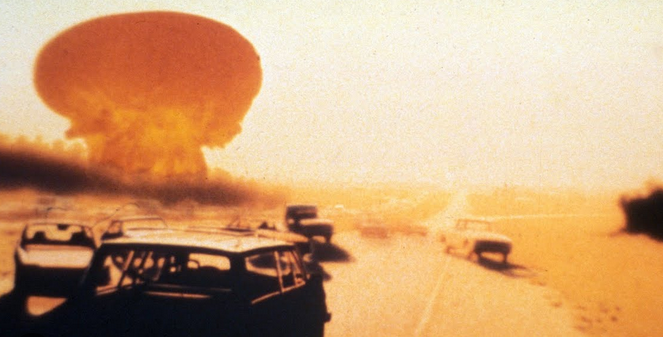"White men have all the power. Look at the board of trustees of CUNY. Look at the Rent Guidelines Board. Look at the MTA. You name them, Battery Park City Authority, Port Authority. Look at the Police Commissioner, Fire Commissioner…Joseph Bruno, head of the state senate, Governor Pataki, all white men. Mayor Bloomberg, white, Speaker Silver, white–five white men determine the two budgets city and state in New York."
City council member Charles Barron’s withdrawal from the mayoral race and subsequent endorsement of C. Virginia Fields in February may have appeared to be the end of the road for Brooklyn’s fast-rising revolutionary. But a number of new projects, multi-million dollar initiatives and a determined spirit indicate that Barron has not even begun to fight. He may have left the race–yet he is more deeply involved in city politics than ever.
Barron’s exit elicited waves of surprise and a unanimous “why” across the city. The departure was followed by a series of speculations and reports from every major news outlet in New York. There were many levels to the council member’s difficult and controversial decision. One aspect was largely financial. When he realized that by February he had $50,000 in the bank and “no real infrastructure” Barron says, in an interview with The Black Star, “I had to do a reality check.â€? Barron notes that it cost $137,000 to win his current city council seat.
Additionally, legal opposition made it difficult for Barron to run for both mayor and retain the 42 District City Council seat which he currently holds. “There’s no law saying that you can’t run for both seats–that you can’t hold two seats,” Barron adds, but notes that lawyers “said that’s a technicality and when you get into state court they’re going to deny you.” Above all, Barron feared disrupting the possibility of an African American candidacy. “I would have had to split the Black vote with Virginia,” he adds, referring to the Manhattan Borough President.
The pool of voters of color is already split–Latino candidate Fernando Ferrer, is current Democratic front runner in the NY1/Newsday poll. Barron had endorsed Ferrer in the past; he’s now a supporter of Fields’ and recently sharply criticized Ferrer after he stated that he didn’t believe the police shooting death of Amadou Diallo was a crime. Officers fired 41 times at Diallo.
Barron’s main priority in his campaign was to raise people of color into positions of power.
“We have to have a more racially balanced and gender balanced power structure,” Barron says. “I see the power structure as all the commissions and the boards of trustees and the commissioners and agencies–the mayor, the governor, the head of the senate, the head of the assembly.”
This initiative is the central tenet of Barron’s Operation Power movement, which had been set in motion during his candidacy. “I figured if I lost as mayor or won I could give rise to this new movement, Operation Power, which would take revolutionaries, radical people, who were shunning the electoral process and grass roots people that don’t think their vote counts, or matters and keep them in a movement that impacts electoral process.” He hopes that the movement will provide communities of color with alternatives to voting for the lesser of two evils and run candidates in which the community can believe and support.
Barron is the first to acknowledge the differences between himself and Fields. “I’m concerned about how she treated the vendors in Harlem, and gentrification, whether she was with the developers or the community, sometimes she is, sometimes she isn’t,â€? Barron added. “She’s a moderate.” Yet, endorsing Fields serves the overall vision of rebuilding the current power structure. “White men have all the power. Look at the board of trustees of CUNY. Look at the Rent [Guidelines] Board. Look at the MTA. You name them, Battery Park [City] Authority, Port Authority. Look at the Police Commissioner, Fire Commissioner…” Barron continues. “Joseph Bruno, head of the state senate, Governor Pataki, all white men. Mayor Bloomberg, white, Speaker Silver, white–five white men determine the two budgets [city and state] in New York.”
Barron had met with Fields to express his concerns shortly before his official decision to drop out. “She reached out to me and I sat with her and I reached out to her. We’re going to do the affordable housing, we’re going to do the structural stuff that I talked about, she made a commitment to reparations even. And fighting for CUNY issues, she’s strong on that.â€?
He then added, more hesitantly, Fields’ uncertainty regarding another one of Barron’s central platforms, again demonstrating their differences: “Political prisoners–she said she’d look at.”
In terms of his own aspirations, Barron explains that campaigning behind Fields, “Keeps me in the game, keeps me a player, and keeps me at leverage. Then I will build Operation Power for ’09.” While getting Fields, a woman of color, into the mayoral office is a step in the right direction for the project, Barron plans to continue moving forward.
He is currently drafting his political career for the future. “Let’s say Bloomberg loses to Virginia and she’s the mayor. I can run for borough president of Brooklyn in 2009,â€? Barron explains. “Spend four years in that, and then do mayor … or public advocate.”
While the mayoral race tends to overshadow other political programs in the city, Barron has been hard at work as representative of the 42nd district, an area composed mainly of East New York and Brownsville. The council member is also dedicated to the various city committees in which he is involved, primarily the Committee of Higher Education of which he is chair person. In the wake of his aborted campaign, Barron has been able to once again focus his efforts on the issues to which he is committed, among them, education, housing, and reparations research by way of his Queen Mother Moore Reparations Resolution.
Barron’s political track record and community operations are equally impressive. Still the question remains, could he have won the mayoral race? He has been referred to as both a “racial arsonist” and “racist.” Bloggers, political enthusiasts, and opponents still discuss Barron’s 2002 statement in which he stated: “I want to go up to the closest white person and say, ‘You can’t understand this, it’s a Black thing,’ and then slap him, just for my mental health.”
The council member disputes the characterization. “That’s the race deck that America or New York has presented to us. I didn’t create white, male supremacy. I didn’t put all the white men’s pictures up on the walls. I just pointed them out.” Barron alludes to the under representation of people of color at the top of city politics despite their majority presence–65% in the city of New York.
These seem to be the antagonistic principles in Barron’s life in electoral politics; he is a radical activist with old fashion values and commitment.
He refuses to change his ways for anyone. “I’m going to maintain my principles, my politics, and my commitment to my people in a very contaminated field called electoral politics,” he declares. “What a juggling act.” Love him or hate him, you have not seen the last of Charles Barron.
For more reports and articles subscribe to the newsstand edition of The Black Star News by calling (212) 481-7745.











